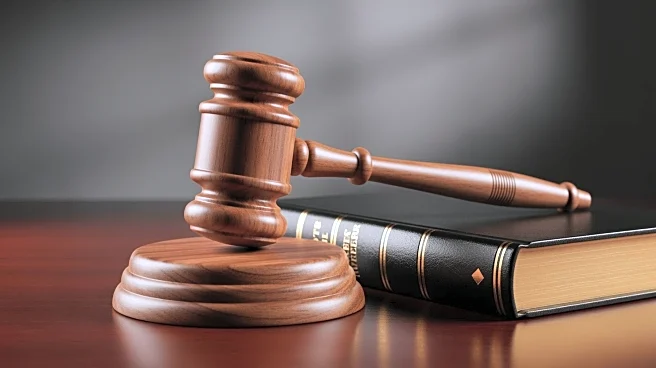What's Happening?
Michael Madigan, the former Speaker of the Illinois House, has been formally disbarred after nearly 60 years as a lawyer. This decision follows his conviction on federal corruption charges earlier this year. Madigan was found guilty of conspiring to defraud
the people of Illinois through bribery and fraudulent pretenses. The disbarment was issued by the Illinois Supreme Court and was noted in a monthly list of attorney discipline. Madigan, who was sentenced to 7 ½ years in prison, began serving his sentence in October at a medium-security facility in West Virginia. His legal career, which began in 1967, was marked by significant political influence and eventual downfall due to corruption charges.
Why It's Important?
Madigan's disbarment marks a significant moment in Illinois politics, highlighting the consequences of corruption within public office. As a long-serving political figure, Madigan's conviction and disbarment underscore the importance of integrity and accountability in governance. This development may influence public trust in political institutions and could lead to increased scrutiny of political figures in Illinois and beyond. The case also serves as a reminder of the legal repercussions for public officials who engage in corrupt practices, potentially deterring similar behavior among other politicians.
What's Next?
Madigan's disbarment and imprisonment may lead to further investigations into political corruption in Illinois. The state's political landscape could experience shifts as new leaders emerge to fill the void left by Madigan's departure. Additionally, there may be calls for reforms to prevent similar instances of corruption, including changes to campaign finance laws and increased transparency in political dealings. Stakeholders such as political leaders, advocacy groups, and the public may push for these reforms to restore confidence in the state's governance.
Beyond the Headlines
The disbarment of Michael Madigan may have broader implications for the legal profession, particularly concerning ethical standards and disciplinary actions. It raises questions about the role of lawyers in political corruption and the measures needed to ensure ethical conduct. This case could prompt discussions within the legal community about strengthening oversight and accountability mechanisms to prevent similar occurrences. Furthermore, it highlights the intersection of law and politics, emphasizing the need for clear boundaries and ethical guidelines for legal professionals involved in political activities.















